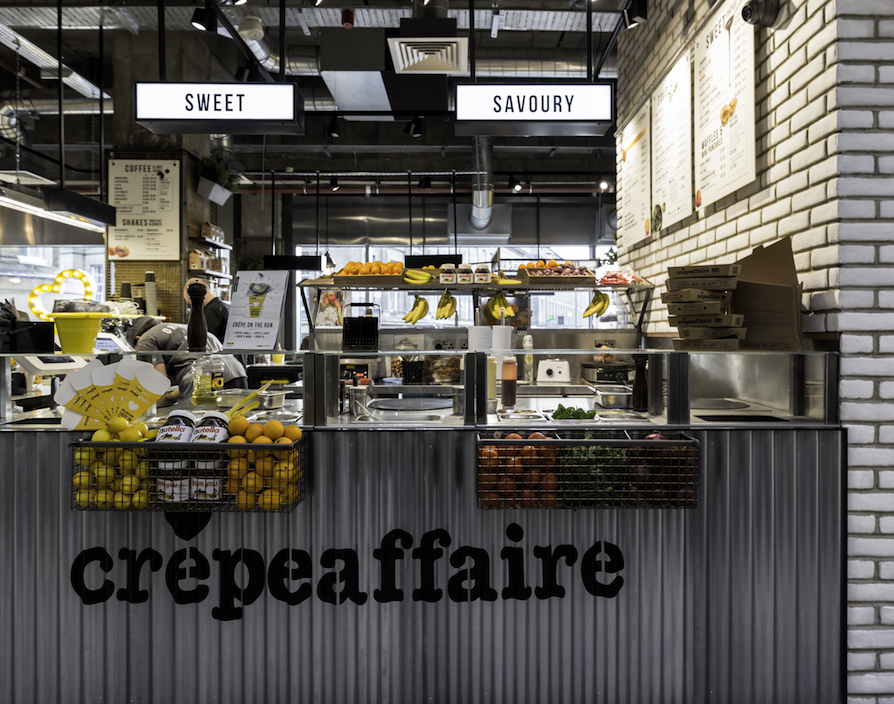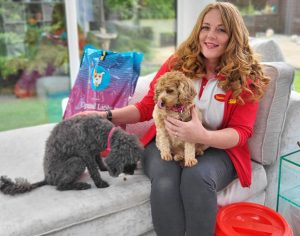Once responsible for food and beverage with Regent International Hotels, Daniel Spinath has been on a broad workplace journey ever since. From hospitality to finance, consumer goods to TV and onwards to travel, he put his experience to good use and founded his own eating empire – Crêpeaffaire. “[I’m] a foodie at heart and I grew up spending most of my holidays in France, so I was very much exposed to crepes,” says Spinath of his inspiration. “That was when I was much younger. I’ve always loved crepes and was really part of the whole French culture.” He didn’t know it then but that childhood memory would stick with him and shape his life decades later.
After clocking up time working at Citi, Procter & Gamble, Viacom and Eurotunnel, the trigger to leap out of the corporate frying pan and into the entrepreneurial fire came as Spinath realised he desired forging a company of his own. “I wanted to do something myself and the thought about crepes was really that it can be something that’s not just a mum and pop business,” he reasons. “And quite frankly, in a very fragmented industry, [crepes] required a system and a brand.” From that point, the target was to take the “humble crepe” and transform it into a quick service restaurant that had the legs to scale.
The first Crêpeaffaire opened in London back in 2005 and it’s fair to say that dining habits and the average guest have changed drastically since then. “There’s been a major shift in food and eating behaviours with consumers in the UK,” opines Spinath. “There’s a lot more grazing [and a] shortage of time people have for eating, so traditional mealtimes such as breakfast, lunch and dinner have shifted into people eating at all points of the day.””
He realised how modern consumers crave knowledge of the ingredients in their food and how healthy it is. This presented a need to provide transparency as well as variety. “Crêpeaffaire isn’t just [for] dessert,” Spinath declares. “We serve a range of products that can cater to breakfast, lunch, dinner and everything in-between because we offer sweet and savoury.” And with each meal being prepared in front of the customers using organic flour and natural ingredients, Crêpeaffaire’s visitors can see what they’re getting. “You can indulge yourself responsibly but on the basis you obviously don’t ask for a triple helping of Nutella,” he laughs, explaining how the business differentiates itself.
Despite operating with what is arguably a niche cuisine, having no direct competition didn’t make things easier. While McDonald’s has a clear rival in Burger King, being the first to venture into the specialist sweet and savoury sector meant he had to compete with the rest of the high street for customers and not just one other eatery. “I think everyone is your competition in the food market because there’s so much on offer,” says Spinath. “We compete with a salad bar, a Pret, with a Mars bar or ice-cream because we’re so versatile in our offering. You just need to stand out.”
Satisfied that the model was working in the face of endless eateries entering the market, Spinath decided the next move should be to franchise the business in 2012 when Crêpeaffaire reached six company-owned stores. “We said we have a company which is growing but we want to grow faster and go into places that we wouldn’t be able to currently control ourselves [because they’re] too far out from our London-centric approach,” he details.
As Spinath developed the model, he discovered how having a franchisee owning a piece of the brand and managing contractual obligations were the most taxing elements of the evolution. “How do you communicate, how do you get things done and how do you integrate the things you’ve learned from your own company into a franchise network?” he says. “How do you get those through to a franchisee knowing they may also have their way of doing things? It requires a different approach in communication.”
![]()



































